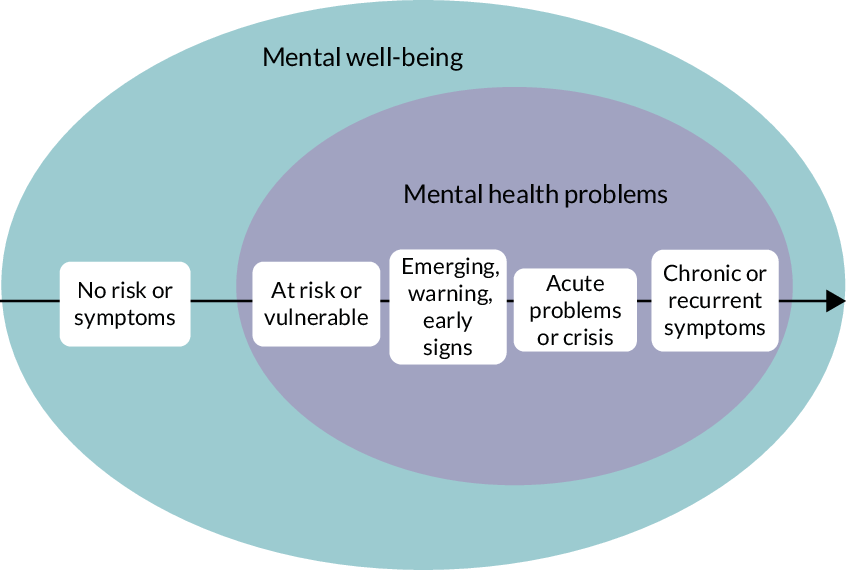In today’s fast-paced world, mental health is increasingly being recognised as one of the most significant factors in determining overall well-being. The connection between mental health and physical health is undeniable, yet often overlooked. It is not just our physical habits and lifestyle choices that impact the likelihood of developing serious health conditions; our mental health plays a crucial role as well. One area where this connection becomes evident is in critical illness prevention.
Critical illnesses, such as heart disease, cancer, and strokes, are among the leading causes of death worldwide. While genetics and lifestyle factors like diet and exercise contribute to the risk of these conditions, mental well-being is equally influential. Chronic stress, anxiety, and depression can significantly impact the body’s ability to maintain good health, increasing the risk of developing critical illnesses. But how exactly does mental health affect critical illness prevention, and how can addressing it make a difference? This article explores the profound relationship between mental well-being and critical illness prevention, and how securing the right insurance can play a key role in managing both.
The Mind-Body Connection
The mind and body are intricately linked, and the state of one affects the other. Mental health can influence physical health in several ways. Chronic stress, for instance, can trigger the release of stress hormones like cortisol, which, when elevated over long periods, can have harmful effects on the body. This includes raising blood pressure, lowering immunity, and increasing the risk of heart disease and other critical illnesses.
Moreover, mental health issues like depression can impact lifestyle choices. People struggling with mental illness may have difficulty maintaining healthy routines, such as eating a balanced diet, exercising regularly, and getting adequate sleep – all of which are essential for preventing critical illnesses. Furthermore, depression and anxiety are often linked to higher levels of inflammation in the body, which is a known contributor to diseases like cancer and heart disease.
Stress and Its Impact on Critical Illnesses
Stress is a common mental health challenge, and it can be both a trigger and a contributing factor for critical illnesses. The body’s fight-or-flight response to stress is a natural reaction designed to protect us from immediate danger. However, when stress becomes chronic, it can wreak havoc on our health.
Prolonged stress can lead to an increased heart rate, high blood pressure, and even the accumulation of harmful substances in the bloodstream. Over time, this can damage blood vessels, increase the risk of blood clots, and contribute to heart disease. In fact, studies have shown that people who are under chronic stress are at a higher risk of developing coronary artery disease, strokes, and heart attacks.
Stress is also a leading factor in other critical illnesses, such as gastrointestinal issues, diabetes, and autoimmune disorders. The immune system’s ability to function properly is compromised when stress hormones are consistently elevated, leaving the body vulnerable to a variety of diseases. In fact, a weakened immune system can significantly increase the risk of both chronic conditions and life-threatening illnesses like cancer.
Anxiety and Depression: Silent Contributors to Critical Illness
While stress is a well-known mental health factor in critical illness prevention, anxiety and depression are just as important to consider. Mental health conditions like anxiety and depression can have long-term physical consequences. Depression, for instance, has been linked to various chronic diseases, including heart disease and diabetes. The relationship between depression and critical illness is complex; however, one factor is clear: depression often leads to unhealthy lifestyle behaviours like smoking, poor diet, and physical inactivity, all of which increase the likelihood of developing critical illnesses.
Anxiety, too, can have physical manifestations that make individuals more susceptible to illness. Constant worry and fear can lead to elevated blood pressure, muscle tension, and digestive issues. These symptoms can weaken the body over time, creating an environment conducive to the development of critical illnesses.
Mental Well-Being as a Key Element in Prevention
Taking care of mental health should be viewed as an essential part of critical illness prevention. Mental well-being plays a significant role in encouraging healthier habits, managing stress, and improving overall quality of life. Regular mindfulness practices, stress management techniques, and emotional support can mitigate the harmful effects of mental health challenges on physical health.
-
Stress Management and Relaxation Techniques:
Practicing relaxation techniques such as yoga, meditation, and deep breathing can help lower cortisol levels, reducing the physical effects of stress. Regular relaxation practices can enhance cardiovascular health, improve immune function, and reduce inflammation, all of which contribute to lower the risk of critical illnesses.
-
Healthy Lifestyle Choices:
Mental well-being often goes hand-in-hand with making healthier lifestyle choices. When we are mentally healthy, we are more likely to eat well, exercise regularly, and get enough sleep—all of which are essential for preventing critical illnesses. Furthermore, mental health support can encourage people to seek medical advice early, potentially preventing serious health conditions from escalating.
-
Seeking Professional Help:
If stress, anxiety, or depression are affecting your life, seeking professional help is essential. A therapist, counsellor, or mental health professional can provide guidance and support to help you manage your emotions and improve your mental well-being. Therapy can also address the underlying causes of stress and anxiety, leading to better overall health.
How does Critical Illness Insurance Play a Role in Mental Well-Being?
Given the connection between mental and physical health, it’s clear that taking steps to protect yourself both mentally and physically is essential. Critical illness insurance is one way to safeguard your future health, ensuring that you’re financially protected should you face a major health challenge.
Critical illness insurance is designed to provide financial support in the event of a diagnosis of a serious health condition, such as cancer, heart disease, or stroke. Having this coverage can ease the mental and emotional burden of dealing with a critical illness by reducing financial stress. This, in turn, can promote better mental health during an already difficult time.
When you have the right insurance coverage, you are better able to focus on your recovery and mental well-being, without the added stress of worrying about medical bills or out-of-pocket expenses. Furthermore, many of the best health insurance policies also cover mental health services, including counselling and therapy, which can provide the support you need to stay mentally healthy during challenging times.
The Best Health Insurance Policy for Families: A Holistic Approach
While critical illness insurance is vital for individual coverage, it’s also important to consider the best medical insurance policy for family needs. Families face unique health challenges, and comprehensive health insurance plans that include mental health services as part of their coverage can be invaluable. A policy that supports both physical and mental well-being ensures that your family is protected against both critical illnesses and the mental health challenges that often accompany them.
Incorporating mental health coverage in your family’s health insurance plan can provide access to essential therapy services, counselling, and other mental health treatments. This holistic approach to healthcare ensures that everyone in your family has access to the support they need to stay both physically and mentally healthy.
As one of the best medical insurance policy for family providers in India, Niva Bupa is committed to offering comprehensive, customer-centric solutions that prioritise your health, both mental and physical. With a focus on holistic care, they provide the best health insurance policy to safeguard your family’s well-being, giving you the peace of mind to focus on what truly matters—living a healthy, happy life.



